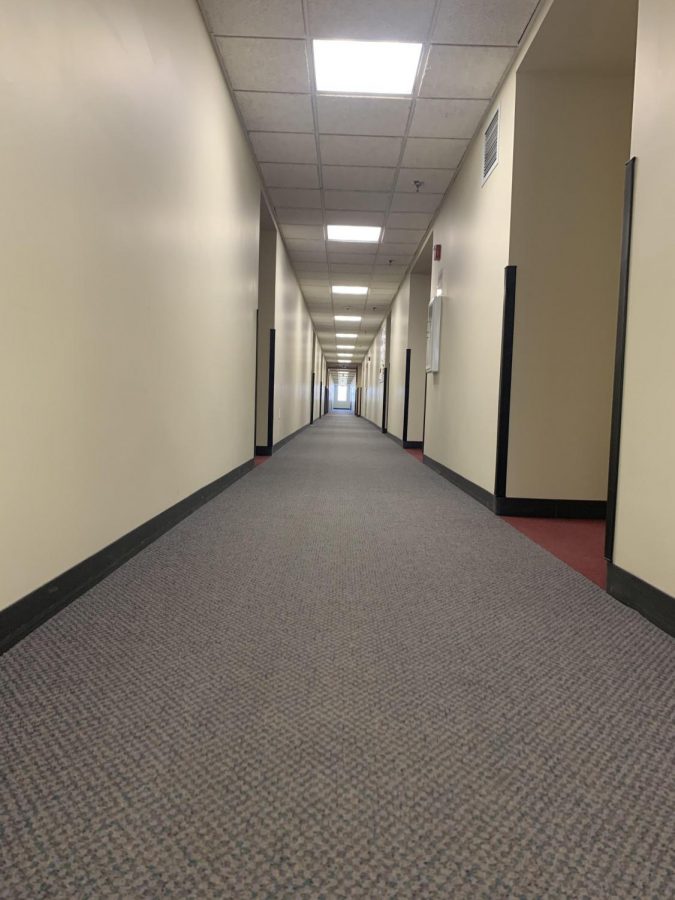Student first, RA second?
Current and former RAs share their views on the challenges that come with the position.
March 18, 2020
Several former Resident Assistants (RAs) have voiced frustration with their time working for Residential Life, following two resignations due to stress caused by the job.
The concerns largely stemmed from feeling the expectations of their job were too demanding and threatened to eclipse their academic life.
Senior Kennedy Simpson, who worked as an RA for two and a half years, expressed that the job simply became too taxing. Simpson explained that she felt like her bosses simply did not respect her time, especially when she was not on duty. She left the position earlier this spring.
“When you’re an RA, whether it’s your residents or your bosses, it just felt like you had to drop everything you’re doing and go in that second,” Simpson said, specifying that this happened to her in non-emergency situations or when she was off duty.
Being an RA is a demanding and time consuming position. RAs serve for a year, working directly as the face of Residential Life.
Weekly time commitment varies depending on when RAs serve duty hours (checking on residents and floors). RAs are on duty once a week as well as one weekend a month. They are also expected to attend monthly programming, weekly staff meetings, and weekly one-on-ones with supervisors as well as checking in with residents as needed.
As compensation, RAs receive free room and board. For RAs in residence halls, this is the cost of a single-occupancy room ($6,220 per year) and $5,000 of declining balance for use towards food. Apartment RAs have a room in the apartment and a more limited declining balance.
Yolanda Armstrong, Assistant Director of the Office of Residential Life, stated that the office tries to be flexible with RAs in striking a balance between the job and their personal and academic lives.
“I don’t want any RA to be fearful because they have a class commitment, or a performance, or student teaching and feel that they can’t fulfill the obligations of their course work,” Armstrong said.
In the RA 2019-2020 job description, one of the responsibilities of RAs is to “show commitment to the Residential Life Office and staff.” According to Simpson, that commitment was not flexible enough to account for the demands of her academic life.
“It kind of got to be a lot toward the end,” Simpson said. “We’re told by our higher ups that school comes first, you’re a student first, but when it came down to it, it felt like when I had classes or homework, or I needed to miss a Monday meeting if anything came before Reslife stuff, we were really reprimanded for it.”
Senior Alex Pick, who was an RA in 2018-2019, also mentioned issues with feeling cared for while on staff. She felt the workload she was under had an emotional impact that was not acknowledged or recognized by her supervisors.
“Overall, the department struggles to make the staff feel valued,” Pick said in an email interview. “The department created a culture of putting the position above most other commitments…However, these expectations were not sustainable and lead to burnout very easily.”
Not all RAs share this experience.
Junior Rose Marie Athiley, who is a current RA, expressed her satisfaction with the flexibility and support structure of Residential Life.
“They really remind us that we’re students first, and to keep that at the forefront of everything so we don’t get lost in our RA role,” Athiley said.
Residential Life currently has a staff of 25 RAs who work with students in campus housing. Over a quarter of the undergraduate student body lives on campus.
“I understand that the RA job is extremely stressful and that we ask a lot, and I want to make sure that the RAs are feeling that they are getting that support,” Armstrong said. “It’s definitely something that I can make a commitment to make sure to continue to emphasize.”






